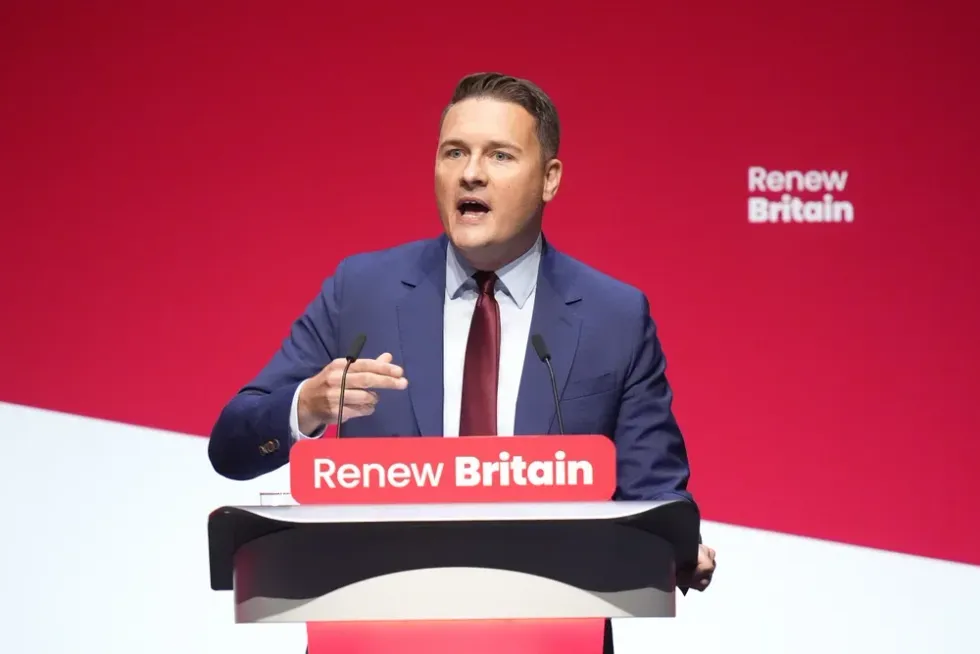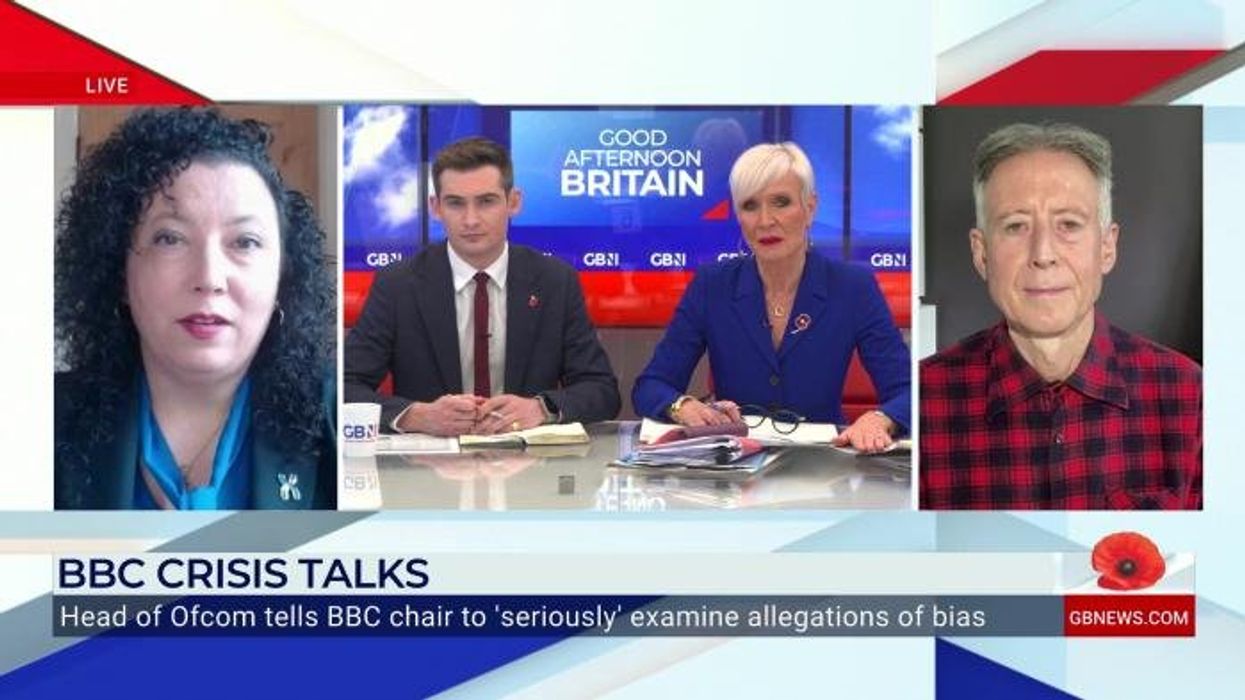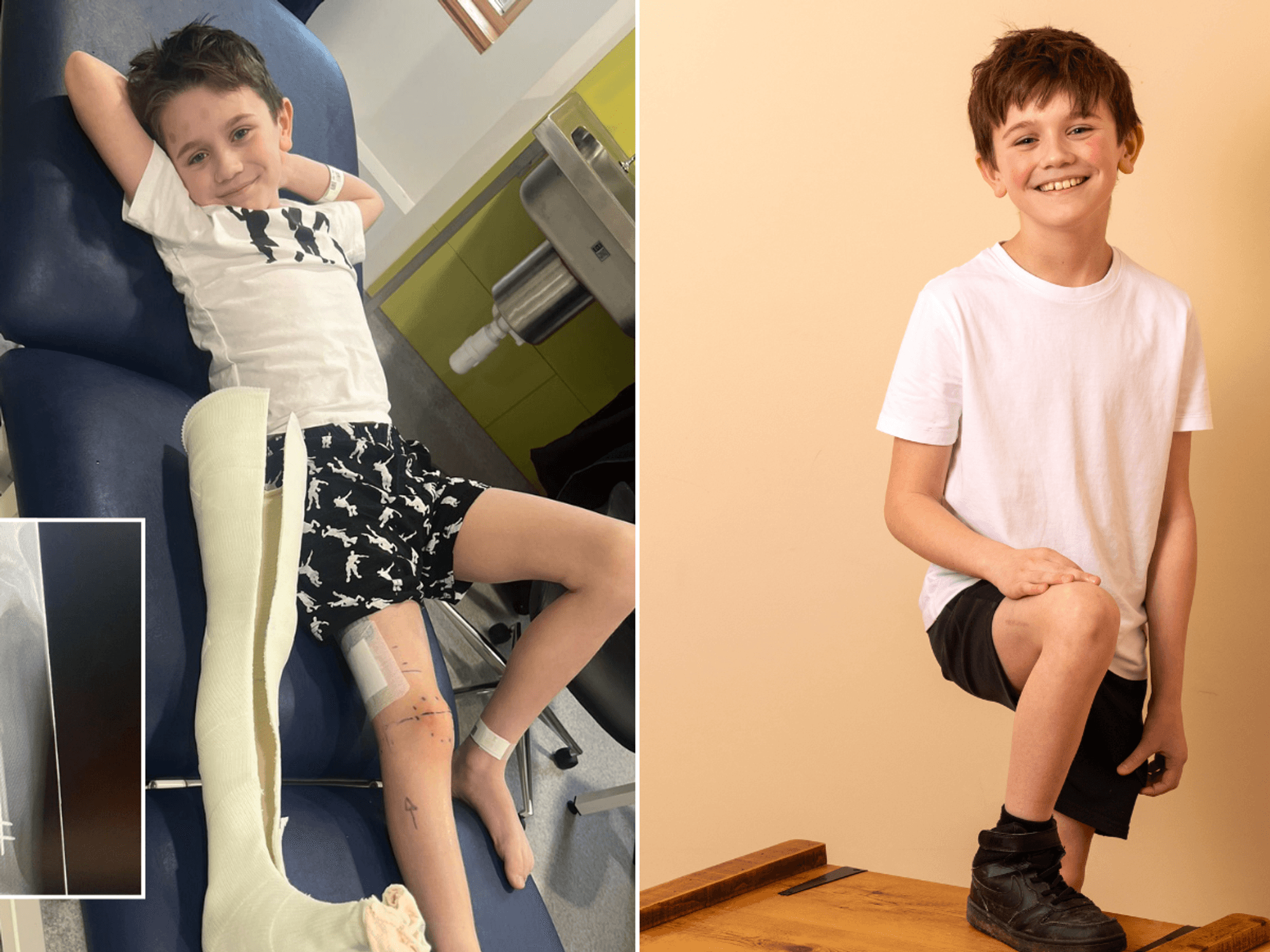Secretive puberty blocker trial faces legal challenge over ‘culture of silence’
The Health Secretary said the 'safety of children must come first'
Don't Miss
Most Read
Latest
A secretive national trial of puberty blockers for children is facing a High Court challenge amid claims that the "powerful and risky" drugs are being pushed through “behind closed doors”.
Psychotherapist James Esses and de-transitioner Keira Bell have sent formal legal letters to the Medicines and Healthcare products Regulatory Agency (MHRA) and the Health Research Authority (HRA) over the PATHWAYS clinical trial, a publicly funded study of puberty blockers.
They say the regulators have refused to confirm whether they have received, assessed or approved the application for the trial, which is being commissioned by the government.
Their solicitor James Gardner, of Conrathe Gardner LLP, said: “There is an appalling lack of transparency here. In the name of scientific research, a significant number of teenagers are about to be given powerful hormones that are known to have serious and irreversible effects. Puberty blockers were banned by the Government in 2024 for that very reason. … Despite repeated efforts to get information from the MHRA and the HRA, we’ve been met by a conspiracy of silence. What are they trying to hide?”
TRENDING
Stories
Videos
Your Say
The legal letters point out that concerns over puberty blockers led the Health Secretary Wes Streeting to halt their routine use in 2024, following a large scale independent investigation – the Cass Review – into gender services for children.
In a statement to Parliament Mr Streeting said: “The Cass review made it clear that there is not enough evidence about the long-term effects of using puberty blockers to treat gender incongruence to know whether they are safe or beneficial. …. It is a scandal that medicine was given to vulnerable young children, without proof that it was safe or effective.”
In a further statement he added: “I am treading cautiously in this area because the safety of children must come first…”
The Commission on Human Medicines has since advised there is currently an “unacceptable safety risk” in the continued prescription of puberty blockers to children.

Health Secretary Wes Streeting
| PAMs Bell and Mr Esses say it is therefore extraordinary that a new puberty blocker trial is being prepared that they claim is out of sight of parents, patients and Parliament.
“This is an urgent matter,” said claimant Keira Bell, “where the ship for the research trial has already sailed. There is no excuse to initiate young, vulnerable young people on these drugs when it may trap them, mentally and physiologically, on a pathway that is likely to cause extensive damage to their long-term wellbeing. By that time, it will be too late. As a minimum, the parameters of the trial need to be out in the open, so that it can be scrutinised from a safeguarding point of view. We cannot abandon these young people who will be experimented on.”
Ms Bell was the lead claimant in judicial review proceedings brought against the Tavistock and Portman NHS Trust in 2020. As a teenager she was given puberty blockers and testosterone and at 20 underwent a double mastectomy. As she matured, she recognised that her gender dysphoria was “a symptom of overall misery” and not its cause, and has now sought to detransition. She has described the consequences as including: “possible infertility, loss of my breasts and inability to breastfeed, reproductive atrophy, a permanently changed voice, facial hair.”
Mr Esses, a practising psychotherapist whose clients include children with gender dysphoria and founder of the organisations Thoughtful Therapists and Just Therapy, said the regulators’ position is a betrayal of basic medical ethics.
LATEST DEVELOPMENTS:

Puberty blockers
|GETTY
“For public health bodies to be engaging in smoke and mirrors regarding a clinical trial that could leave unknown numbers of children infertile and irreversibly damaged, both physically and emotionally, is utterly shameful. It flies in the face of the Hippocratic Oath”.
According to the legal correspondence, solicitors acting for the pair first wrote to the MHRA on 11 April 2025, asking it to confirm whether it had received an authorisation application for the PATHWAYS clinical trial.
On 14 May 2025, the MHRA replied: “The MHRA has not received, assessed or approved a Clinical Trial Authorisation application” in relation to the PATHWAYS clinical trial.
But when lawyers went back in September to ask if that position had changed, the agency would neither “confirm nor deny” this on the grounds that the information is “commercially sensitive.”
On 7 October 2025 it told them: “We can neither confirm nor deny that the MHRA holds the information you have requested.” It said there was “a strong public interest in ensuring that commercial entities can engage with the MHRA in a confidential environment” and concluded: “…accordingly, we find that the balance of public interest lies in neither confirming nor denying whether the MHRA holds the information in question.”
A separate Freedom of Information request to the HRA drew a similar response. On 25 October 2025, the HRA refused to disclose the trial protocol or application, saying there should be “a proper time to carry out and complete this work without the undue pressure that disclosure would place on the researchers.”
The claimants say this “culture of silence” contradicts the HRA’s own statutory objective to promote transparency in health research and leaves families in the dark about a trial that could have life-changing consequences for vulnerable young people.
They are now seeking judicial review, asking the court to declare the MHRA’s refusal to confirm or deny its handling of the PATHWAYS application unlawful and to order the regulators to disclose whether the trial has been received, assessed or approved, together with the application, protocol and ethics opinions.
If that does not happen voluntarily, Bell and Esses say they will press ahead in the courts - arguing that exposing children to powerful hormones under a “veil of secrecy” is “irresponsible and immoral”, and that the public has a right to know what is being done in their name.
A Department of Health and Social Care spokesperson said: “Children’s healthcare must always be evidence-led. We need to act with caution and care when it comes to this vulnerable group of young people.”
A Health Research Authority Communications spokesman said: "As with all clinical trials, all usual review processes have been followed for the PATHWAYS trial, including legal assessment by HRA staff and ethics review by an independent Research Ethics Committee. In line with research reviewed by the HRA, whatever the outcome of that review, the research summary be published on the HRA website once a decision has been shared with the research team."











